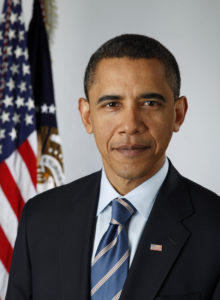
Barack Obama dismayed by EU-US summits
Europeans have had a tendency to consider the problems in the transatlantic relationship stemming from the US being governed by the “wrong” president. Despite Obama’s popularity in Europe, events have demonstrated that the new administration has not provided the EU with a strengthened avenue of influence. In some respects, the multilateralism of the new administration has made the EU’s lack of clout more evident than was the case during the Bush presidency.
Obama’s pragmatic multilateral approach to foreign policy entails cooperation with any actor who can effectively help the US reach its goals. In particular, Obama has singled out rising powers like China and India as partners with which he intends to cooperate. Obviously, the perception of a “special relationship” between the US and Europe does not fit well with this approach. A European Council on Foreign Relations’ paper – “Towards a Post-American Europe: A Power Audit of EU-US Relations” – argues that the US has realized that its’ briefly held global dominance is a thing of the past. In its stead, the US is working to replace dominance with a network of partnerships, intended to secure America’s position as the “indispensable nation” in this network.
On the other hand, Europe still perceives the transatlantic relation in Cold War terms. I.e. Europe defers to the US, believes European security depends on US protection, and believes a harmonious relationship with Washington is an end unto itself. In cases where US policies did bring about European criticism, such as the German and French criticism of the Iraq war, Europe was split. The “transatlantic rift” was of great concern in European capitols and measures were quickly taken to mend the relationship. European governments fear ganging up will damage the “special relationship” each country believes they enjoy with Washington. The report argues that this is an outdated perception of the transatlantic relationship, and that a complacent and deferential Europe is not the partner Washington is looking for. As Obama said during is first presidential trip to Europe; “We want strong allies. We are not looking to be patrons of Europe we are looking to be partners of Europe.”
Obama has a lot on his plate; economic instability, nuclear proliferation, Afghanistan and more. The ambiguous Europeans are hardly the ideal partner for this daunting agenda. Take for example Obama’s attempt to engage the Muslim world, and compare it with key EU members France and Germany instead suggesting a “privileged partnership” between the EU and Turkey. Or consider Europe’s incohesive reaction to the financial crisis or the great variations in Europe’s Afghanistan policy.
Unsurprisingly, the President was unimpressed by the two EU-US summits he attended last year – dismayed by the multitude of EU representatives across the table from him. This led to the decision to scrap the President’s participation in the May 2010 summit. The snub has been interpreted as a not so subtle jab, intended to urge the EU to rationalize its bewildering decision making process.
On a general level, the US’ willingness to engage has robbed Europe of its perceived role as moderator of US policy. Now that Obama follows “European” polices, what is left for Europe? The EU’s preference for US multilateralism has been fulfilled, but the EU themselves have not proven to be the ideal partners, when it comes to multilaterally engaging in international politics in conjunction with the US. Considering that Europe has gotten the multilateral US it asked for, the ball would seem to be in the European court. For the EU to participate in global politics in conjunction with the US, it must – somewhat paradoxically – be willing to contradict Washington. Only an EU that is capable of speaking up for its own interests (aside from economic interests, which the EU indeed has proven itself capable of speaking up for) will prove itself a viable partner.